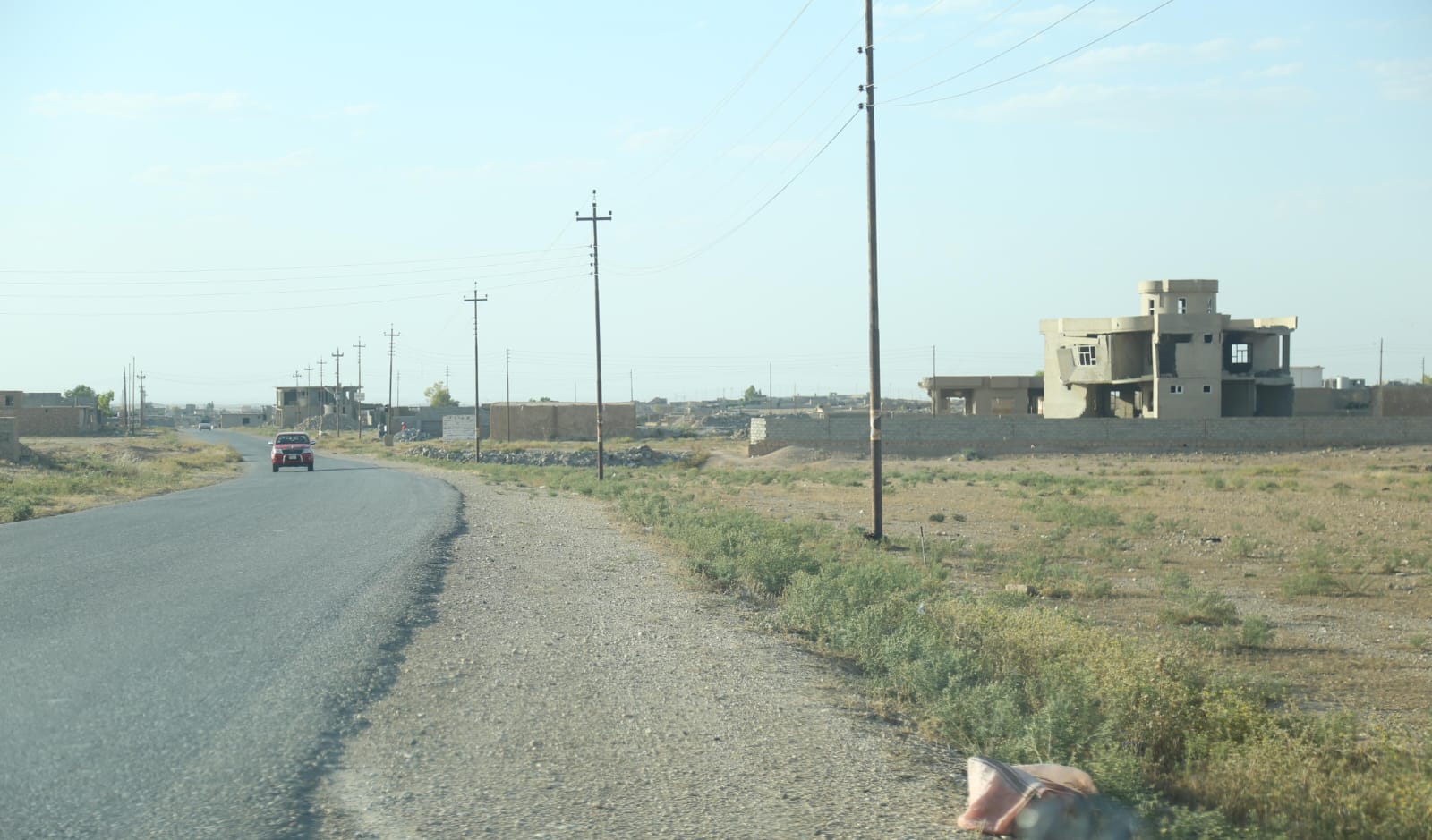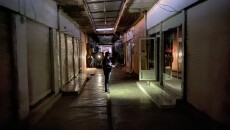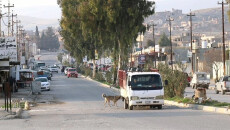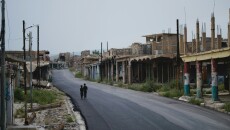About 50 displaced families, who returned to their hometowns in Shingal after ten years of suffering inside the camps, face the problem of the absence of electricity.
The returning families, all of the (Ezidi) Yazidi component, spent 10 years in camps for the Internally Displaced Persons IDP in the Iraqi Kurdistan Region IKR and returned during the past months to their houses in the Dugry complex in the Sinuny sub-district of the war-torn Shingal district. Still, they now suffer from lacking main services, including national electricity.
“Since our return to this day, we have not been provided with national electricity,” Youssef Murad told KirkukNow. He has been living in this situation for a month when temperatures in the region are approaching 40 degrees Celsius and are expected to rise further in mid-summer.
Like Youssef, 50 families in the Dugry complex suffer from the same problem.
“We, as displaced families returned home but do not have national electricity. The electric power lines did not reach our area.”
They have contacted relevant government agencies, but the problem has not been addressed yet.
Since the beginning of this year, 800 families have returned from the camps to their original areas in Shingal, according to the KirkukNow follow-up, following the Iraqi government’s decision to close all IDP camps by the end of July.
The returnees are entitled to receive a grant of four million Iraqi dinars IQD (USD2,700), in addition to providing household supplies, job opportunities, and compensation.
The grant will be distributed directly to each displaced family after their return, in addition to providing some supplies and electrical appliances such as refrigerators, televisions, and stoves with a total value of about 3 M IQD.
There are more than 600,000 IDPs in the IKR, some of whom are distributed among 26 camps, 16 of which are in Dohuk Northern Province, housing 26,000 families, most of whom are Nineveh residents, especially from the Ezidi component of Shingal District, according to statistics from the Joint Crisis Coordination Center of the Kurdistan Regional Government KRG.
Haji Murad, director of the Sinuni Electricity Department, told KirkukNow, “Most of the electricity lines were damaged during the Daesh (ISIS) attack on the area. We are now in the process of extending new lines to deliver electricity to the returning families.”
He pointed out that the population percentage has increased in the Dugry complex, so this will be Temporary solutions, not radical solutions.
Haji Murad added that he had conveyed citizens' complaints to the Nineveh Outskirts Electricity Distribution Directorate, awaiting the next steps to rehabilitate all the electricity lines in the Dugry complex.
Dugry complex, affiliated with Sinuni sub-district, is 70 km north of the center of Shingal district. Before the attacks by IS militants in August 2014, the population of the complex was close to 25,000 people, most of whom are still displaced.
Shingal fell under the control of the "Islamic State of Iraq and Syria - ISIS" in August 2014, and within months the battles led to the destruction of thousands of homes, buildings, and infrastructure, while the fate of more than 2,500 Ezidis who were kidnapped and enslaved by ISIS militants remains unknown.
The reconstruction of Shingal District, which has been suffering for years from the presence of two administrations, is part of the provisions of the Shingal Agreement, which was also confirmed in the ministerial platform of the Iraqi government, signed in 2020 yet has not been implemented.
Six million Iraqi citizens were displaced from their areas due to the ISIS war and the military operations of the Iraqi forces during the period of war against ISIS, from 2014 to 2017, According to the International Organization for Migration IOM. Still, over one million citizens are living in displacement, including the displaced people residing in the camps of the Kurdistan Region.








